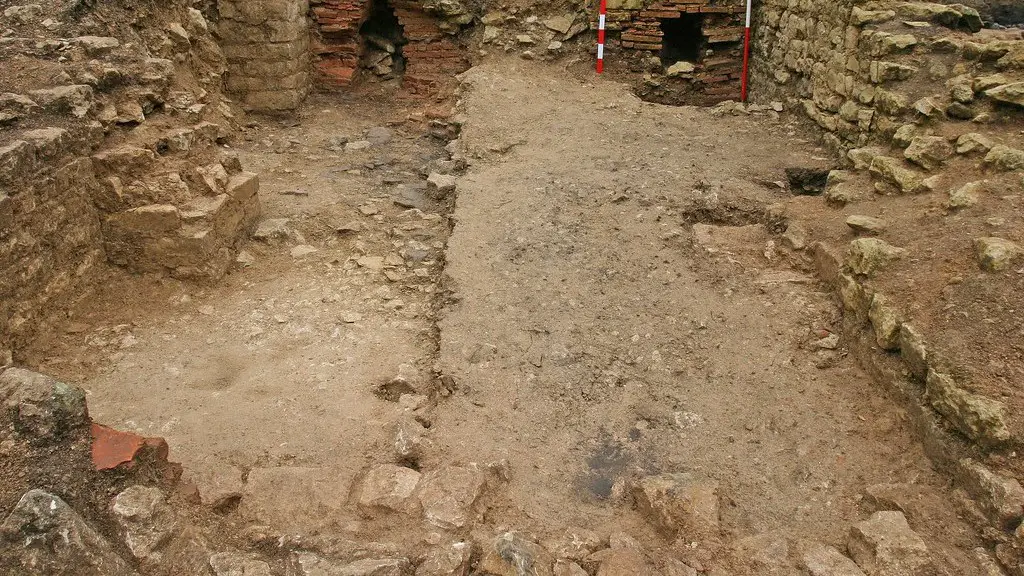What were tax collectors like in Ancient Rome?
Ancient Rome saw probably some of the most efficient and varied tax collection that the world has ever seen. Tax collectors during Ancient Rome were far from what we would think of today when we say the words “tax collector.” In Ancient Rome, tax collection was a matter of survival for the state and the government. The Roman government relied heavily on taxation to generate income and redistribute wealth within the court and amplify the power of the developing state. Tax collectors in Ancient Rome worked for the whole Roman Empire, collecting taxes from its citizens to fund a variety of state activities and operations.
Practical Tax collection in Ancient Rome
Tax collection in Ancient Rome was surprisingly practical. All households were counted and their total number taxed. Citizens were taxed on their income, property, and purchases. Depending on the type of taxes imposed, the state could either collect them directly (tributum) or indirectly (vectigal). Regardless of the type of tax, all taxes imposed were enforced. Outright refusal to pay these taxes and outstanding debt would result in the seizure of goods and property.
Other taxes involved items like public goods and services such as the construction of water mills, public roads, and public baths. Roads were especially important and were a symbol of wealth. Maintenance was expensive and was paid for by contributions from the citizens.
Tax collection methods in Ancient Rome
When it came to tax collection, the methods used in Ancient Rome depended on the type of taxes being collected and the type of system imposed at the time. Taxes were collected by local magistrates, duumviri, for the Roman Empire. They operated under the command of the Roman Senate and were responsible for collecting the taxes and distributing the proceeds among the citizens.
In the early days of the empire, the taxation system was not overly complex and relied on the simple notion that all citizens of the empire had to pay. Later on, a more intricate system was created, dividing citizens into two classes: liberti and non-liberti. This system made sure that everyone – except the few that were exempt – was taxed, regardless of their status.
Tax collectors in Ancient Rome: Motivation and Earnings
The Roman Empire employed many tax collectors and with this position came a great amount of money and influence. Tax collectors during this time were usually well-paid, as they were expected to pay their own expenses. They were most likely motivated by self-interest rather than a sense of duty or patriotism. However, they did bring a sense of stability and order to the chaotic world of Ancient Rome.
Tax collectors in Ancient Rome had the luxury of perks, such as the ability to keep a portion of all the taxes that they collected. As a result, powerful and wealthy tax collectors could even become members of the Roman Senate, rise to positions of imperial power, and become some of the most influential voices in the government.
The Romans also developed a more formal bureaucracy for tax collection and for organizing the treasury. This bureaucracy was known as the Quaestors and was first established by the Roman Senate. Quaestors were typically wealthy and powerful figures in Ancient Rome and could serve as a deterrent against any illegal or immoral tax collection.
Quaestors took charge of the tax collection, monitoring the activities of other tax collectors, and erecting new taxes if circumstances warranted it. The records they kept were also considered instruments of justice since they recorded how much each citizen was supposed to pay in taxes and how much the state collected.
Tax Collection in the Roman Empire: Conclusion
Tax collection was important for the economic and political success of the Roman Empire. It enabled the state to pay for its military and public works operations, redistribute wealth, and maintain stability. Tax collectors in Ancient Rome had a lot of power and could easily corrupt the system. Therefore, the Romans established special authorities, such as the Quaestors, to keep the system in check.
Final Thoughts
Modern tax collection is often based on the methods implemented by the Ancient Romans. Simple methods of taxation, such as a head tax, are still used today. In addition, tax collectors in Ancient Rome were allowed to keep a portion of all the taxes collected, providing them with a great incentive to be accurate and efficient.
Colonial Tax System
The Ancient Roman tax collectors formed the foundation for the modern tax system that we find in modern-day societies, from small towns to colonies and countries. The Ancient Roman tax collectors were looked upon as greedy and corrupt people, but the Latin word for tax derived from the word for gift. This was meant to reinforce the idea that taxes were given as a gift to the people for services rendered by their government.
Taxes were also used to fund public works projects, such as roads and aqueducts. Colonies used the same methods as the ancient Romans to fund public works and services, and to raise revenue to support their territorial claim. Taxes were seen as a necessary part of colonizing a new land, as they provided a way to finance the development of the new colony.
Tax Reforms
The Ancient Romans were some of the earliest reformers of the tax system. They implemented a series of tax codes in order to keep taxation fair, prevent corruption, and ensure that all citizens were able to pay their debt. Even today, the Roman system of taxation is still used in countries all over the world.
Many countries have followed in the Ancient Roman footsteps and implemented their own system of taxation. The United States, for example, uses a progressive tax system whereby those with higher incomes pay a higher percentage of their income in taxes than those with lower incomes. This is a direct relic of the Ancient Roman tax system and is still used today in many modern societies.
Tax Evasion
Unfortunately, tax evasion was and continues to be a problem in Ancient Rome and in modern societies. In the Ancient Roman tax system, those who could afford it would hire tax attorneys or advisors who would help them find ways to evade taxation. This was often done by exploiting loopholes in the system, hidden accounts, and other dishonest practices.
In modern times, tax evasion continues to be a problem, and many countries have enacted laws to combat it. Sadly, many of these laws target the average working individual while wealthier individuals are able to evade taxes by using complex legal strategies and offshore accounts.
Tax Collection Impact
Tax collectors in Ancient Rome had a profound impact on the course of Rome’s history. Tax collectors kept track of the wealth of the people and used it to fund public works and services, as well as to strengthen the empire’s military power. Tax collection also provided the Roman government with the financial means to implement reforms that would improve the lives of their citizens.
Despite the advances in technology and modern-day reformers’ attempts to make the tax collection system fairer, it is still plagued by tax evasion, corruption, and inequality. Tax collectors in Ancient Rome helped pave the way for modern taxation, but it is up to us to build on this foundation and create a tax system that works for everyone.


